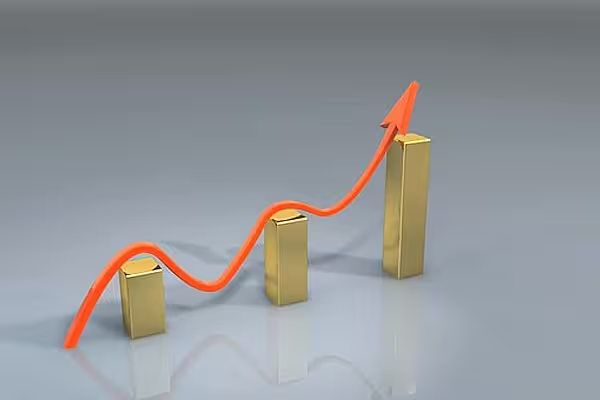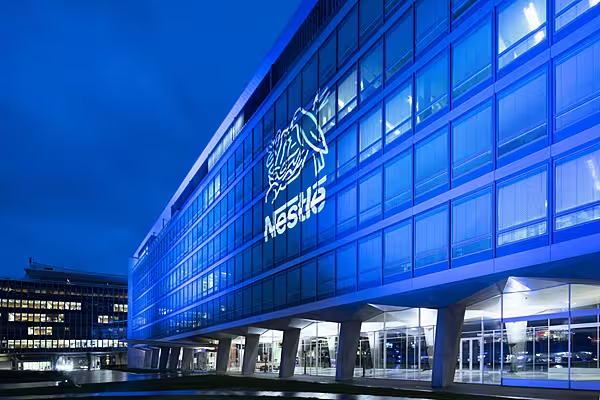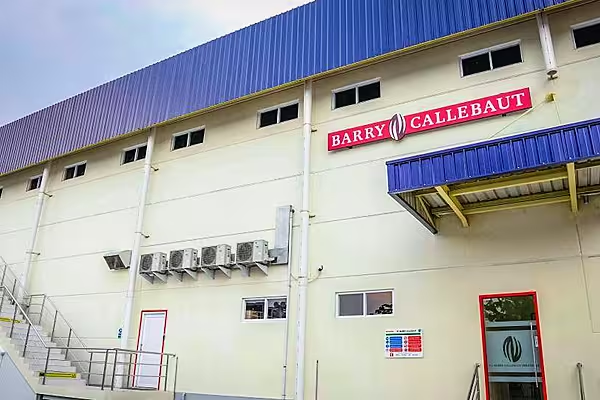Nestle SA and Unilever reported sales that beat estimates as the European food giants pushed through price increases to combat slowing consumption in most parts of the world.
KitKat maker Nestle said organic revenue rose 2.3% in the first quarter, compared with the 2% median estimate. Unilever’s sales growth of 2.9% exceeded analyst predictions of 1.9% in the Anglo-Dutch company’s first results announcement since rebuffing a takeover approach from Kraft Heinz Co.
Improved pricing power at both companies provided an early sign of recovery for the food and beverage market after years of deflationary pressure in Europe, slowing sales in China and economic crises in Brazil and Russia. Higher commodity costs, inflation in Brazil and the fall in the pound since the UK’s vote to leave the European Union are contributing to the upward pressure.
“Pricing was better than expected,” said Jon Cox, an analyst at Kepler Cheuvreux. “In the second half, with pricing and reaction to trends, food companies should see organic growth bump back up to 4% to 5%.”
Nestle shares rose as much as 1.1% to CHF 75.80 in early Zurich trading. Unilever gained as much as 1.6% to €48.48 in Amsterdam.
Demand Hit
The challenge facing companies now is that some cost increases are provoking consumers to reduce purchases: Nestle said higher pricing weighed on shipments in Europe and also at its baby-food unit.
Nestle’s quarterly revenue growth was the slowest this century, according to Andrew Wood, an analyst at Sanford C. Bernstein. A later Easter in 2017 pushed chocolate orders into the second quarter from the first this year.
Unilever was more aggressive than Nestle in raising food prices in the quarter, with a 3.4% increase, led by more expensive versions of Magnum and Ben & Jerry’s ice cream. Nestle, which increased prices 1%, was prompted to raise the cost of Nescafe as robusta coffee futures have gained 38% in the past year.
“We’re starting to see some inflationary pressures in the UK from the depreciation of the pound,” chief financial officer Graeme Pitkethly said in a phone interview, adding that the company’s competitors are also raising prices in the country. UK grocer Tesco Plc last year briefly removed some Unilever items from its online store after a dispute over pricing.
Positive aspects of the period for Nestle, the maker of Lean Cuisine meals, included accelerating sales in Europe and Asia, Kepler’s Cox said. In contrast, growth slowed to a near halt in the Americas region, hurt by declines in US confectionery and pet care.
Unilever cited gains in its home- and personal-care businesses, while sales were unchanged in the food division. The ice-cream unit was helped by new products such as chocolate-coated Magnum pints in a tub. The Refreshment unit, which includes ice cream, increased prices by 5%.
The Anglo-Dutch company didn’t provide any immediate update on plans to divest its spreads unit, which includes the Flora brand. After fending off Kraft Heinz in February, Chief Executive Officer Paul Polman said Unilever will deliver on promises to increase shareholder returns via buybacks and lift profitability goals.
In a first move toward that, the company raised the quarterly dividend by 12% to €0.36 a share.
On a busy day of reporting for Europe’s food producers, Danone will announce first-quarter sales after markets close.
News by Bloomberg, edited by ESM. Click subscribe to sign up to ESM: The European Supermarket Magazine.














